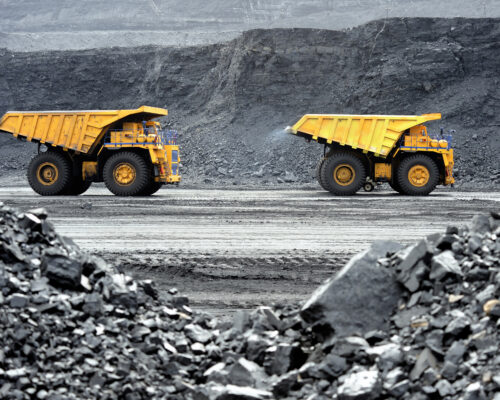Blog
SK E&S, K-Sure and Kexim Face Rising and Unquantified Risks With Their Backing of the Barossa Gas Project Off Northern Australia
The Export-Import Bank of Korea (Kexim) and the Korea Trade Insurance Corp (K-Sure) are risking Korean public money by financing SK E&S’ investment in the Barossa gas project off the coast of Northern Australia. The Korean government agencies funding and insuring the Barossa gas project face significant and mounting risks on two fronts – native title and climate-related risks.
Japan’s ‘Green Transformation’ Would Derail the Energy Transition in Asia
Japan stopped exporting dirty coal technologies last year following pressure from campaigners. However, its new Green Transformation strategy relies on the continued use of fossil fuel-based technologies, and the country plans to prolong fossil fuels across Southeast Asia by promoting carbon capture, gas and the co-firing of ammonia at coal power plants.
Carbon Capture and Storage: Pros and Cons
Carbon capture and storage (CCS) provides a pathway towards reducing fossil fuel-related emissions and bolstering hard-to-abate carbon intensive industries. Additionally, it provides benefits like economic growth and job creation and can be crucial to the global low-carbon shift. However, questions remain regarding its high costs and varying effectiveness.
The Growing Burden of Climate, Water and Energy Crises on Women
women still find themselves in disproportionately disadvantaged positions compared to their male counterparts, particularly in rural Bangladesh and India. As countries strive for equal opportunities and to make the world a better place, they must accelerate efforts for clean solutions.
Carbon Credits and the Problem With Fossil Fuel Companies
Fossil fuel companies are increasingly relying on questionable carbon credits as they face mounting pressure to meet climate targets. Instead of phasing out polluting fuels, the industry is now rebranding them as low-carbon, carbon-neutral and clean. But, are they?
Fossil-linked Energy Firms Have High Emissions and the Room for Denial is Shrinking
The first set of globally aligned sustainability and climate-reporting standards is expected to be published in June 2023. The news was announced at the World Economic Forum in Davos in January 2023 and chief among the new requirements is emissions reporting, including Scope 3.
EV Battery Mining and Pollution in Indonesia
With China’s support, Indonesia’s EV battery mining practices are scarring landscapes, polluting air and harming communities. Will the industry act to end these practices?
Would Pakistan’s Long-term Power Purchase Agreements Become Roadblocks to its Solar Energy Revolution?
The new Fast Track Solar Initiative aims to substitute solar PV for expensive fossil fuel power generation. Like many countries in Asia, which have been priced out of liquefied natural gas (LNG) markets after Europe’s ‘buy-at-any cost strategy’ to avoid reliance on Russian gas, Pakistan too has been on the lookout for alternatives that offer economically priced and reliable energy supply.
Facebook’s Renewable Energy Progress: Is It Enough?
Facebook reached 100% renewable energy and net-zero for operational emissions in 2020 – goals that were set in 2018. These are good stepping stones, but they make a small impact based on the scale of the business. Scope 3 emissions are still high and will be Facebook's new carbon-neutral target in the coming decade.
Google Turns Sustainability Initiatives Into Reality
Google is known for being at the forefront of sustainability. Its initiatives are far reaching, ambitious and transparent. This goes beyond internal targets, like being carbon-neutral by 2030, but extends to how it influences the world and helps consumers make informed, sustainable choices. Its programs make it a sustainability leader in the technology industry.
What Are Carbon Offsets and Do They Work?
They’ve been around for almost 25 years and they’re still highly controversial, but what are carbon offsets? Could they really be a dangerous distraction from the real solutions to climate change?
Samsung’s Journey To Carbon Neutral: How Does It Stack Up?
Samsung aims to be carbon-neutral by 2050, and its public-facing messaging shows progress towards this goal. However, the company's net-zero target takes place 10 to 20 years later than Apple, Google and Amazon. This, among other concerns, raises the question: Is Samsung doing enough for sustainability?
Renewable Energy May Provide South Asia Relief From Energy Price Shocks
Imported fossil-fuel-dependent South Asian economies, India, Bangladesh and Pakistan, have not been able to escape the perils of volatile and elevated prices of oil, gas and coal in the international energy market. However, renewable energy promises to ensure affordable energy and shield the foreign currency reserves of South Asian countries.
Most Popular
Categories
-
9
-
31
-
127
-
4
-
17
-
39
-
51
-
14
-
10
-
15
-
23
-
6
-
155
-
162
-
23
-
1
-
22
-
30
-
36
-
66
-
14
-
74
-
40
-
17
-
6
-
28
-
21
-
85
-
245
-
20
-
35
-
31
-
9
-
41
-
35


